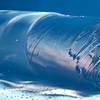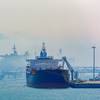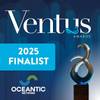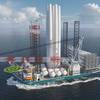Transas Eco-Driving Simulator for Rørvik Safety Center
Transas has developed and delivered a new simulator for monitoring fuel consumption and emissions. The customer, Rörvik Safety Center (Norway) has designed a training concept called EcoShip which is supposed to change the mindset of officers and open their eyes to that part of the problem that they can do something about.
EcoShip is a range of courses under the auspices of the Rørvik Safety Center, whose innovative maritime environment simulator will be a useful tool and an important contribution to the maritime industry's ambitious environmental goal of reducing emissions of greenhouse gases and pollutants.
Fuel consumption and emissions is a very hot topic right now, especially considering new MARPOL Convention amendments concerning transfer of oil cargo between oil tankers at sea for the prevention of marine pollution during some ship-to-ship (STS) oil transfer operations. Meanwhile fuel saving has always been a large concern.
EcoShips objective
Course participants will acquire the necessary knowledge, skills and competence to plan and carry out fuel economy runs of typical shuttle ferries / express boats in order to minimize emissions of greenhouse gases and pollutants. Students should also understand the connection between fuel efficient driving and increased safety for ships, cargo and passengers - especially in maneuvers to and from shore.
Marine environment simulator
Training with the help of the environment simulator EcoShip is an educational and realistic way to show correlation between different types of vessels handling and discharge of emissions to air. Environment simulator has different functionalities, the most important being:
• Simulate various types of vessels (ferries, speed boats, etc.)
• Measure the speed and time spent
• Measure the fuel consumption in real time, total and average
• Measure the emissions of NOx, SOx, CO2 and HC
• Store the simulations for the debrief of the course participants
EcoShips whole way of thinking
The simulator has an electronic chart and information system (ECDIS), radar and marine communications with the intent to provide a holistic approach and create realistic conditions for learning. The simulator will be used to create understanding and change the attitude among the navigators on board various ships, preferably shuttle ferries and high speed crafts (HSC). Through the simulator training navigators will get an idea how to reduce emissions of pollutants and greenhouse gases and lower fuel consumption and costs through the planned execution. The simulator will also be used for education in accordance with STCW-95 standard in navigation, marine communications, Rules of the road, "Search and Rescue" operations and radar / ARPA.
www.transas.com










